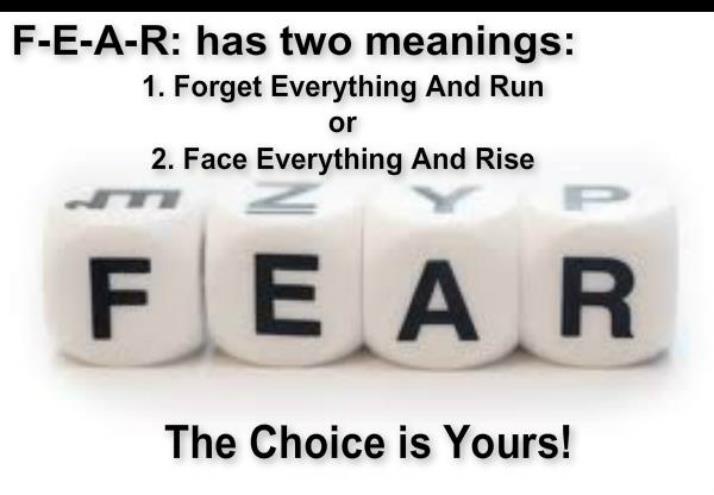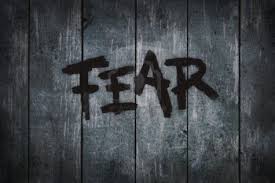People, closed spaces, crowds, helplessness, losing people, losing jobs, loving too much or too little, reptiles, insects and worms – these are some of the things I’m afraid of. I’m around thirty years old, give or take a couple of years, an editor by profession and out-and-out modern in my approach to life. I’m outdoorsy, love shopping, eating out, travelling, cooking, music, books, perfumes, watches, dresses, shoes and so much more. I’m a woman, normal in every respect, who takes life, work and relationships seriously; I’m a woman who cries when hurt and bleeds when cut. I’m a theist, a believer in good and therefore, I also believe in the presence of evil and in ghosts and demons and the rest as manifestations of that evil. I realize, every moment, that I’m human and that I, therefore, have human failings – fear is one of those failings. I face as much of it as the next person and I have my own ways of dealing with it, so that I can keep moving forward, past my fears, fighting them instead of giving in to them and coming to a standstill.
Once upon a time, not very long ago, fear used to rule my every action, every thought even, until I was so deep in my own darkness that I used to contemplate about killing myself and putting an end to the suffering. This lasted until I realized that nobody could help me unless I picked myself up and out of the darkness I was in. I also realized that the more you try to shun fear, to avoid it or deny its existence, the greater is its hold over you. So I learnt to acknowledge my fears to myself and others, in spite of the fact that people have laughed at my fears, loudly and often. I realized that bravery lies, not in being unafraid and therefore, foolish, but in acknowledging fear as being real and in being wary of the object of your fear. Once I realized this, the rest wasn’t easy; but I knew that I could scale this mountain, slowly but steadily. Overcoming fear is like climbing a never-ending staircase – one step at a time, placing one foot in front of the other and climbing upwards. And fear doesn’t hamper my day-to-day life anymore.
I’m not at all ashamed to admit that my greatest fear is of people – not reptiles or worms or insects or darkness, ghosts, height and so on, but people. I’ve been bullied, abused, ignored, duped, cheated, ill-treated, threatened – by people. Yet I still go out every day and socialize with people for three reasons – I need to face my fear instead of running away from it; I’ve realized that experience is a better weapon than ignorance, and that not all people are bad – if I’m alive and thriving today, it’s because I’ve been helped by a lot of good people. The scars from the past, however, are a constant reminder that not everybody can be trusted and therefore, I need to be wary at all times and never let my guard down. The most painful experiences have nearly always come from the closest quarters – people who I thought of as family or friends. And these experiences have led to the realization that fear is closer home than we realize.
It is sometimes hard to get back to normal even after the trigger or object that causes fear is removed. The effect of fear might extend from a couple of hours to a couple of years, maybe even longer depending on how potent the fear is. Fear is often related to past incidents – the past, here, might refer to the recent past or a more distant past. Many of us find that we tend to forget various incidents with time. However, the memories of such incidents, especially the bad, fear-inducing ones are never entirely erased; they are hidden from sight by the gathering dust of time, but they are often awake in our sub-conscious. Therefore, we often find ourselves unreasonable fearful of certain things or even certain people. This is where the saying ‘A burnt child dreads the fire’ inevitably comes to mind.
So, the question is, how does one free oneself of the paralyzing effects of one’s fears and continue with one’s day to day life? I’ve realized from my personal experiences that we can only be truly and completely free of fear when we realize that we are trapped by our fears in a spot from where there is no going back and the only act left is to move forward, face our fears and keep moving past them. The image that can be associated with overcoming our fears would be that of a ship in a gale, the sailors trying their utmost to save the ship from being wrecked because there’s nothing else to do. Life is the ship that we try to steer in the stormy seas of time, and no matter how dark the sky, how high the waves or how strong the gale, all that we can do is to hang on and try to survive. This is fearlessness or bravery, in my opinion – the act of not giving up, no matter what; the act of realizing that if we don’t master our fears, they will master us and destroy us; and that the act of facing our fears and moving forward past them, putting one foot in front of the other and climbing from the darkness into the light is a monumental one. Once we realize these things, the rest is definitely not easy; but, the realization and acknowledgement of our fears is the first step that we need to take in order to conquer our fears and live life as it should be lived; besides, it also shows us the path out of a miserable existence. Some day we might even come to know that our constant battle against fear has helped somebody else face his or her demons. That would certainly be something to look forward to, wouldn’t it?


